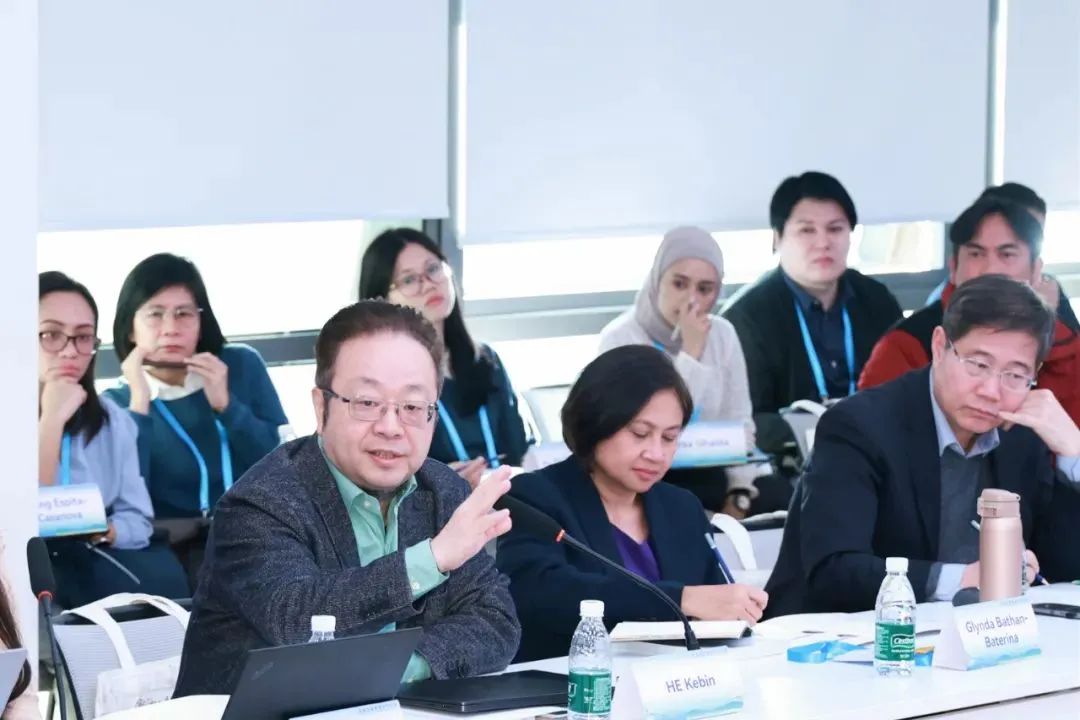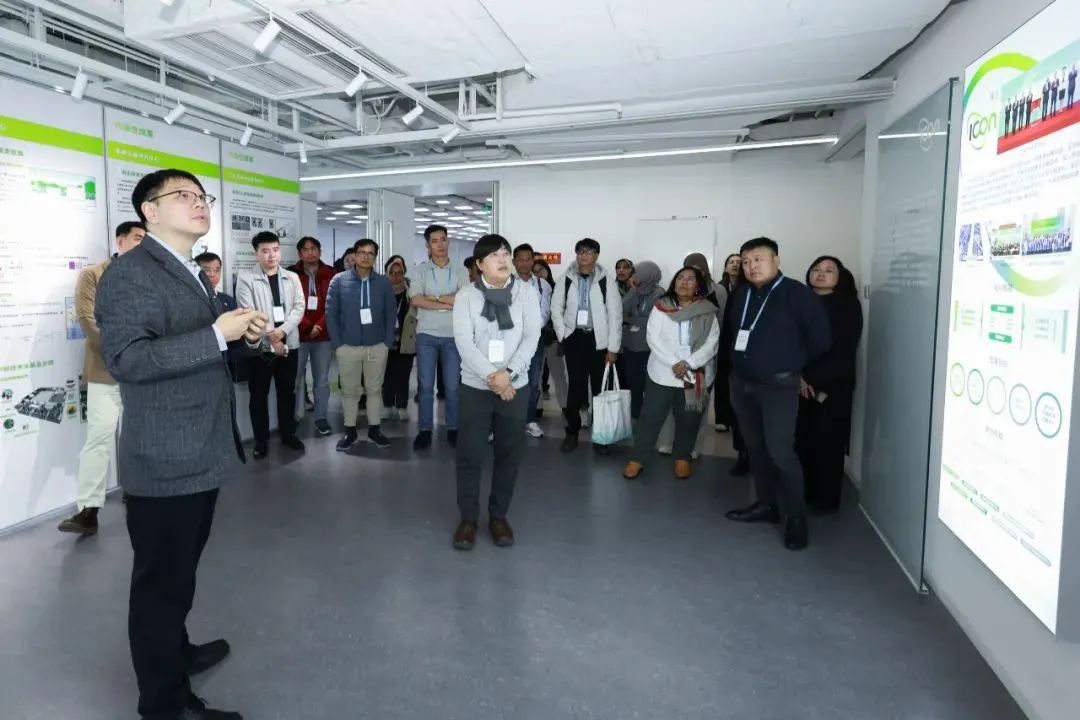The "Scientific Pollution Control for Shared Blue Skies" Asia Regional Clean Air Exchange, co-organized by the Clean Air Asia and the Foreign Environmental Cooperation Center of the Ministry of Ecology and Environment, was successfully held on November 18–21 in Beijing. Supported by Peking University’s College of Environmental Sciences and Engineering, Tsinghua University’s School of Environment, Tsinghua Institute for Carbon Neutrality, the Clean Air Policy Partnership, and the Vehicle Emission Control Center of the Chinese Research Academy of Environmental Sciences, the event featured thematic exchanges and site visits. Representatives from government agencies and research institutions in Indonesia, Vietnam, Thailand, Mongolia, and the Philippines engaged in in-depth discussions on air quality management and synergistic pollution and carbon reduction.
The exchange began on the afternoon of the 18th with nearly 50 participants attending the opening ceremony and a policy seminar. Over the following days, delegates visited the Beijing Ecological and Environmental Monitoring Center, Peking University, Tsinghua University, and the Vehicle Emission Control Center, participating in thematic reports, roundtables, and site visits to learn about the latest research, policies, and practical experiences in air quality management.
The event is a key part of the "Asia Regional Clean Air Exchange Program" initiated by Clean Air Asia and partners, aiming to promote dialogue and cooperation across Asian countries and cities in air quality improvement and integrated pollution and carbon reduction.
At Tsinghua University, Professor He Kebin, Director of the Institute for Carbon Neutrality and CAE Member, emphasized the importance of regional cooperation. Experts including Professors Liu Huan and Tong Dan shared insights on emission inventories, model frameworks, and policy assessment tools essential for science-based air governance.


Delegates highly appreciated the event for its practical focus and relevance to regional challenges. Key takeaways included China’s experience in new energy vehicle promotion, emission inventory management, air quality monitoring, health and cost-benefit analysis, and vehicle emission standards. Participants expressed strong interest in continued capacity building, scientific collaboration, and long-term exchange through the Clean Air Asia platform.
Glynda Bathan-Baterina of Clean Air Asia noted that regional cooperation is crucial to achieving clean air across Asia, and looked forward to deeper knowledge sharing and joint initiatives in the future.
The event received coverage from multiple media outlets including China Environment News, China News Network, and Global Times.
 Latest recommendations
Latest recommendations


